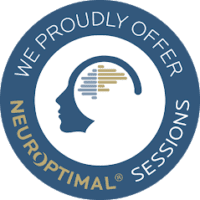Understanding the Mind-Body Connection: A Counselor’s Perspective

By: Emily Brick, NCC, LPC, Therapist—Mount North
Real-life strategy to reach your goals.
As a counselor, one of the most fascinating and empowering aspects of my work is observing how the mind and body are intertwined. This connection is something many of us often overlook, despite its profound influence on our mental, emotional, and physical well-being. Understanding the intricate relationship between the two can offer immense healing and open up new pathways for personal growth.
Real-life strategy to reach your goals.
The Science Behind the Mind-Body Connection
We strive for diversity across the globe
The mind-body connection isn’t just a philosophical concept—it’s supported by science. Research in fields like neurobiology, psychology, and medicine demonstrates that mental states can influence physical health, and vice versa. For example, when we experience stress, our bodies release hormones like cortisol that can weaken the immune system and cause other physical ailments such as headaches, digestive issues, and muscle tension. On the flip side, physical activities such as exercise or yoga can trigger the release of endorphins, boosting mood and alleviating symptoms of anxiety and depression.
But it’s not only about stress or physical activity. More subtle influences, such as thought patterns, emotional regulation, and the way we interpret events in our lives, have a powerful impact on our bodies. Cognitive-behavioral therapy (CBT), for instance, helps clients recognize unhelpful thought patterns and teaches them how to reframe their thoughts to improve emotional responses and physical health. By changing how we think, we change how we feel—and ultimately, we change how we experience life in both body and mind.

How the Mind Affects the Body
Real-life strategy to reach your goals.
Many of us have experienced the physical toll of our emotional states at some point in our lives. Stress, anxiety, and depression can show up in the body in various ways: tight shoulders, chest pain, fatigue, digestive problems, and more. These aren’t just “in your head”—they are real, physical symptoms that reflect emotional distress.
Chronic stress is one of the most common culprits when it comes to the mind-body connection. In today’s fast-paced world, we are constantly under pressure, whether it’s from work, relationships, or societal expectations. Over time, this chronic stress can lead to a range of physical issues like high blood pressure, heart disease, and sleep disorders. When we constantly live in “fight or flight” mode, our bodies don’t have the opportunity to relax, repair, and rejuvenate.
Additionally, unresolved emotional trauma or repressed feelings can manifest physically. A person who has suffered from long-term emotional distress may experience chronic pain, fatigue, or illnesses like irritable bowel syndrome (IBS). These conditions, often labeled as “psychosomatic,” can be seen as the body’s way of expressing unresolved mental or emotional pain.
Real-life strategy to reach your goals.
We strive for diversity across the globe
How the Body Affects the Mind
The body significantly influences the mind in ways we might not always recognize. Chronic pain, for instance, can lead to frustration, anxiety, and even depression, creating a cycle where emotional stress worsens physical discomfort. Similarly, poor sleep can affect mood, concentration, and emotional regulation, making it harder to cope with daily challenges.
Hormonal changes, like those during pregnancy or menopause, can cause mood swings or irritability, showing how physical changes can impact mental health. Exercise, on the other hand, releases mood-boosting endorphins, improving both energy and mental clarity, while poor nutrition can lead to fatigue and irritability.
Even simple things like posture and muscle tension can influence stress levels. When we feel physically uncomfortable, it can make mental stress feel more overwhelming. By taking care of our physical health, we can often improve our emotional well-being, creating a healthier mind-body balance.
Strategies for Strengthening the Mind-Body Connection
Real-life strategy to reach your goals.
As a counselor, I encourage clients to take a holistic approach to their mental and physical health. Here are a few practical strategies that can help improve the mind-body connection:
Real-life strategy to reach your goals.
We strive for diversity across the globe
How Counseling Can Help Restore the Mind-Body Connection
Real-life strategy to reach your goals.
Counseling plays a crucial role in restoring the balance between the mind and body. Whether in person or through telehealth, a skilled counselor can help you address the emotional and psychological factors that influence physical health, while also providing tools to enhance your overall well-being.
In therapy, we work together to identify stressors, unhelpful thought patterns, and emotional blocks that might be manifesting in physical symptoms. Cognitive-behavioral techniques, mindfulness, and relaxation exercises can be taught to help reduce stress, increase emotional awareness, and cultivate a sense of calm. These approaches not only improve your emotional state but can also relieve physical symptoms such as muscle tension, headaches, or fatigue.
Telehealth counseling, in particular, offers the added benefit of accessibility and convenience. You can engage in therapy from the comfort of your home, making it easier to commit to regular sessions and integrate therapeutic practices into your daily routine.
Ultimately, counseling provides a safe, supportive space to explore the mind-body connection. With the right tools and a compassionate therapeutic relationship, you can work toward not only emotional healing but also improved physical health, regardless of the format of your sessions.
Conclusion
The mind-body connection is a powerful and often underappreciated aspect of our health. As a counselor, I see every day how interwoven our emotional and physical well-being truly are. By becoming more aware of how our thoughts, emotions, and bodies are interconnected, we can take steps to cultivate a more balanced, fulfilling life. Whether through therapy, physical activity, mindfulness, or other holistic practices, strengthening the mind-body connection is a key step toward overall well-being.
Remember, healing isn’t just about the mind or the body—it’s about integrating both. Treat them with care, and you will experience a more harmonious and resilient self.
Related Posts


